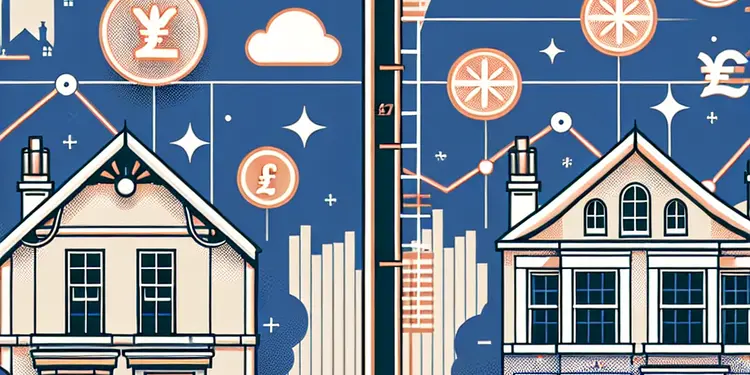
Find Help
More Items From Ergsy search
-
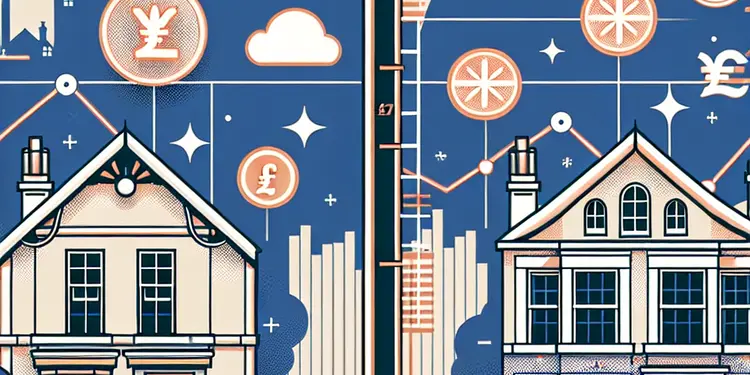
Why might I pay a significantly different rate from my neighbor?
Relevance: 100%
-

Are there different rates of Stamp Duty in the UK?
Relevance: 63%
-

Is it necessary to check on neighbors during a heatwave?
Relevance: 61%
-

What is my neighbour required to do under GDPR?
Relevance: 57%
-
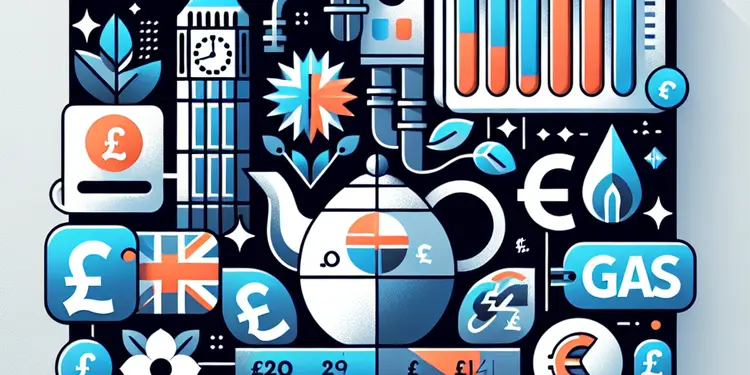
How can I compare prices among different energy suppliers?
Relevance: 57%
-
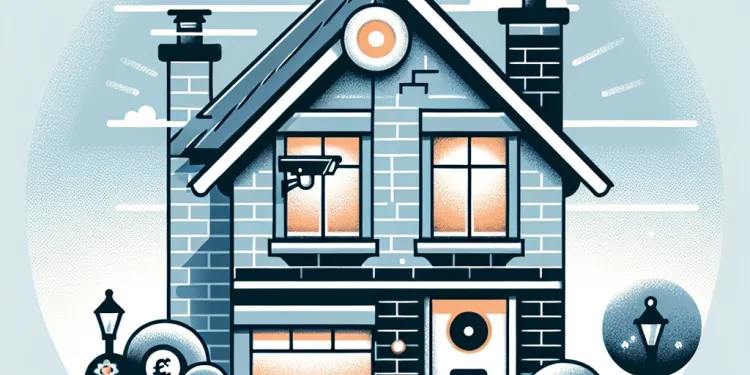
Do neighbours need to inform me if their cameras record my property?
Relevance: 57%
-
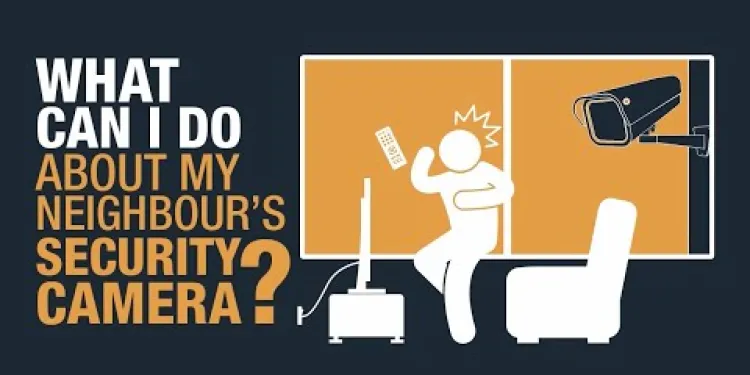
What can I do about my neighbour's security camera?
Relevance: 56%
-

What can I do about my neighbour's security camera?
Relevance: 56%
-

Can I ask my neighbour to reposition their security camera?
Relevance: 56%
-
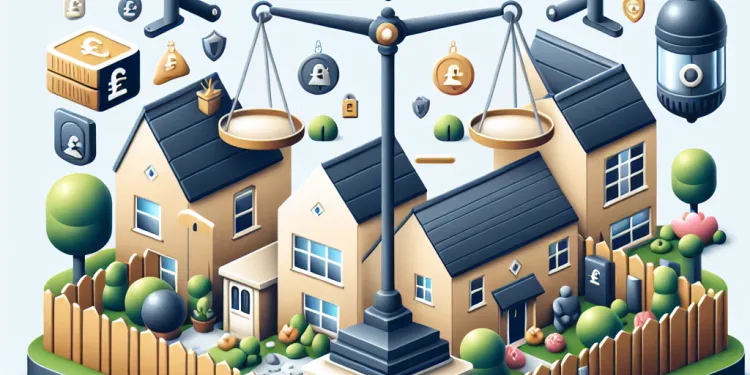
Are there privacy laws that protect me from neighbor's cameras?
Relevance: 56%
-
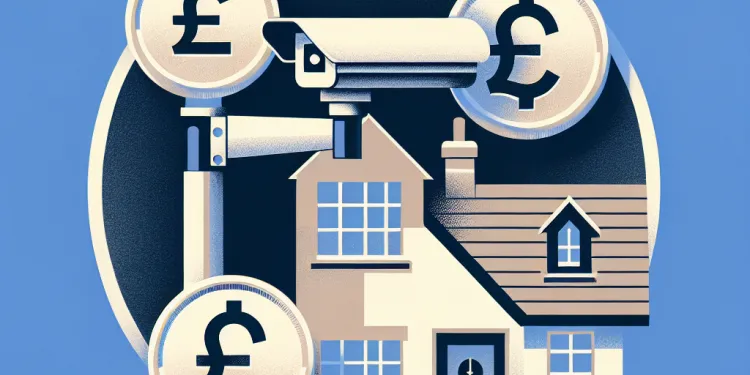
What if my neighbor claims the camera is for security but it points towards my property?
Relevance: 55%
-
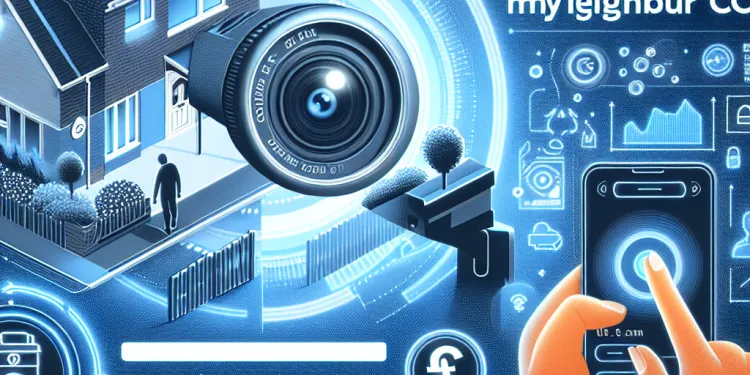
Can I request footage of myself from my neighbour's CCTV?
Relevance: 55%
-

Is it legal for me to block the view of my neighbour's security camera?
Relevance: 55%
-
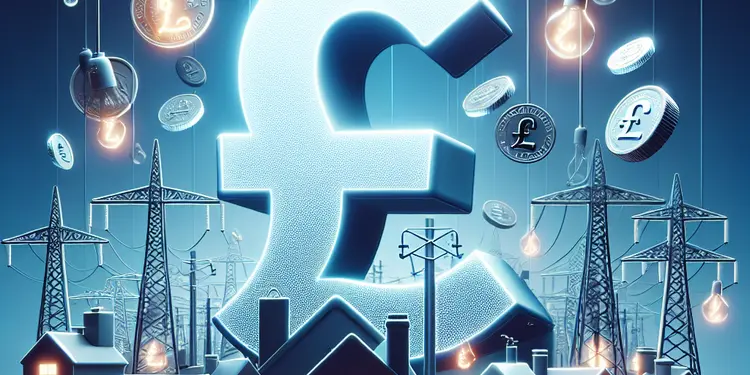
Why do energy companies charge different rates for their electricity?
Relevance: 55%
-

What happens if a neighbor builds a fence on my property?
Relevance: 55%
-
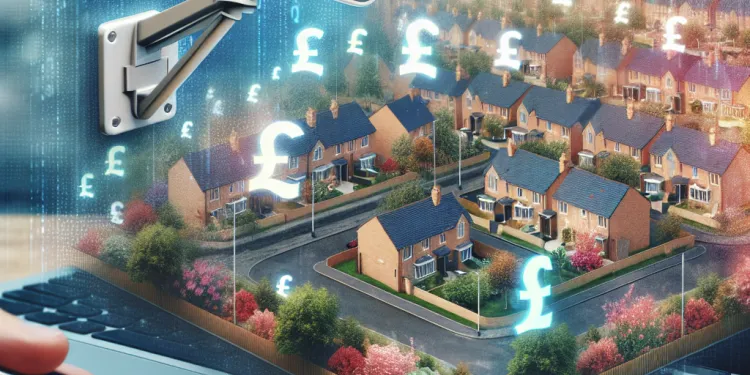
Is it legal for my neighbor to have a security camera facing my property?
Relevance: 55%
-
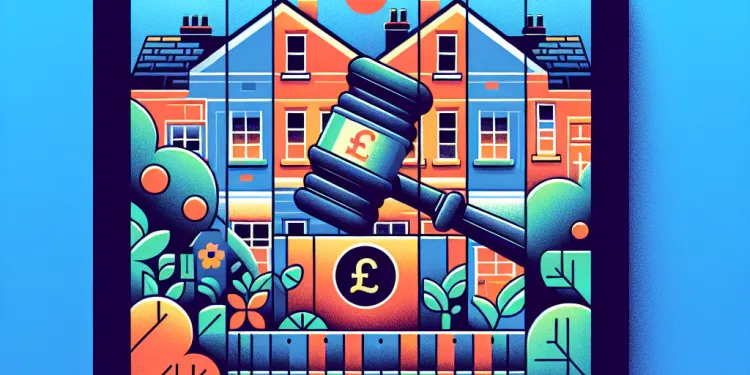
Does the ICO have the power to take action against my neighbour?
Relevance: 54%
-

Can I block the view of my neighbor's camera with physical barriers?
Relevance: 53%
-
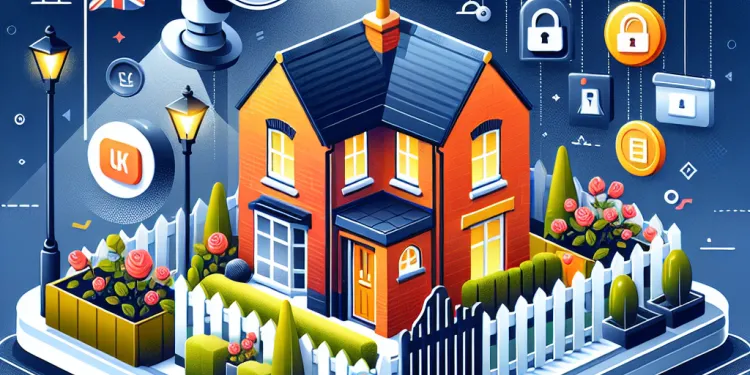
How can I stop my neighbour's security camera pointing at my property?
Relevance: 53%
-
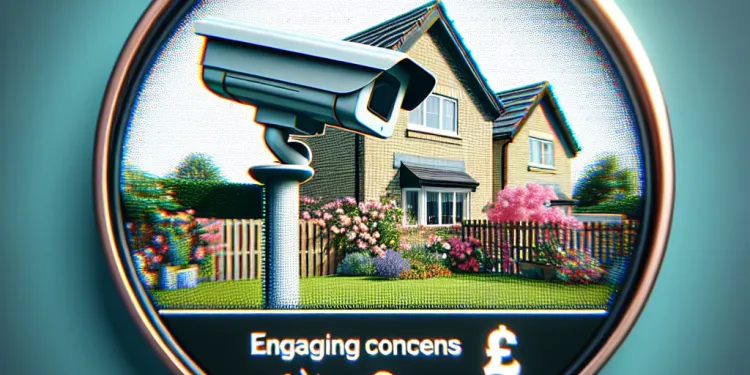
What should I do if I feel my privacy is being invaded by my neighbour's CCTV?
Relevance: 53%
-
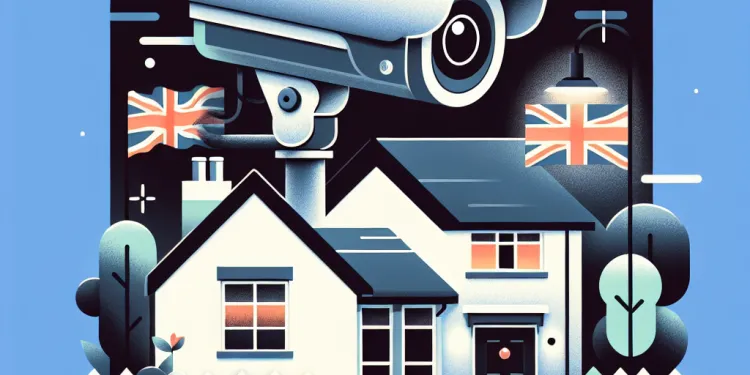
What should I do first if my neighbor's security camera is pointed at my property?
Relevance: 53%
-

Should I contact the authorities if my neighbor refuses to adjust their camera?
Relevance: 53%
-
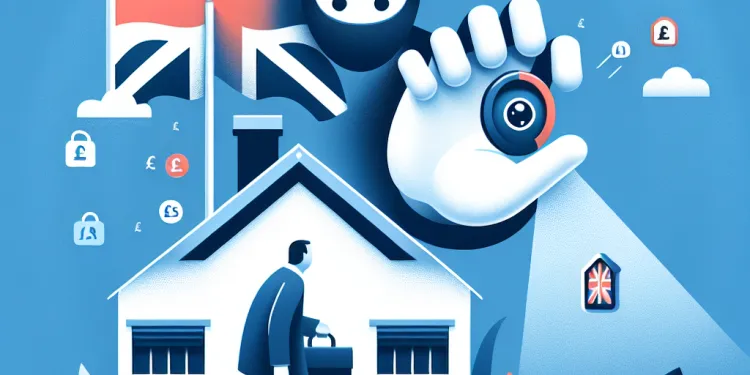
Can I ask for legal help to get my neighbor’s camera moved?
Relevance: 52%
-
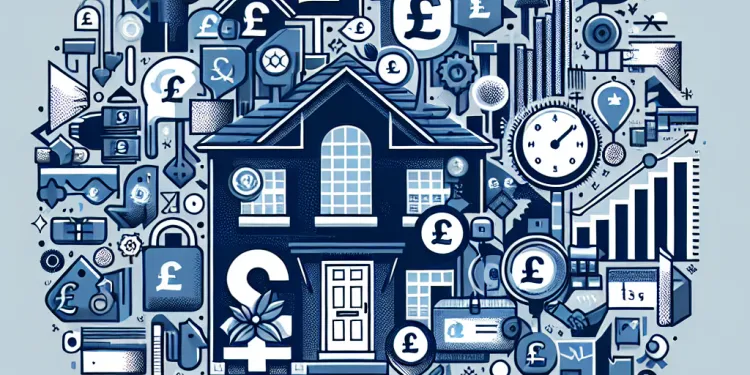
Are first-time buyers affected differently by interest rate changes?
Relevance: 51%
-
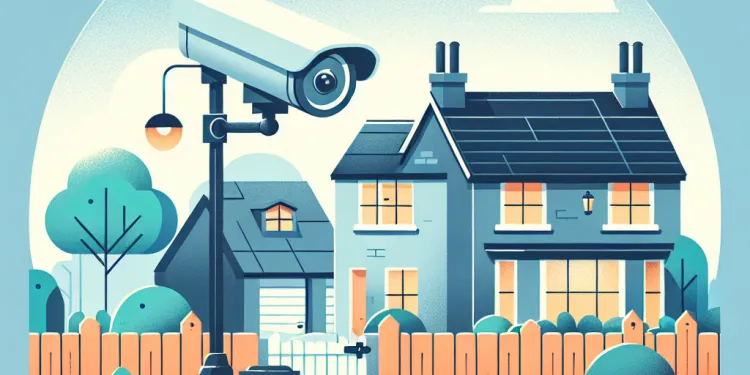
Can my neighbour legally point a security camera at my property?
Relevance: 51%
-
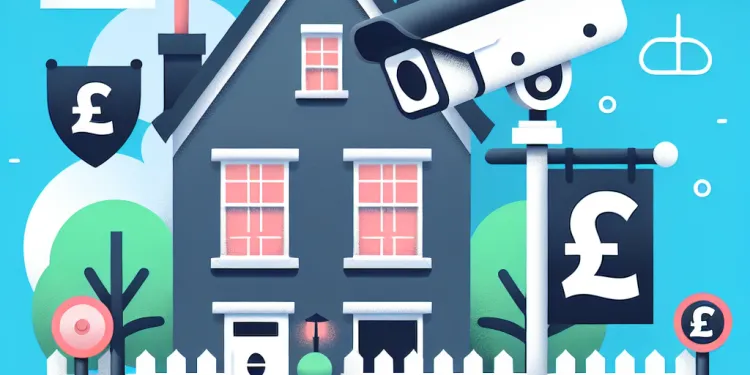
What steps can I take if my neighbour refuses to reposition their security camera?
Relevance: 51%
-

What is the difference between fixed and variable rate plans?
Relevance: 49%
-

Is there a difference in concussion rates between amateur and professional rugby?
Relevance: 47%
-
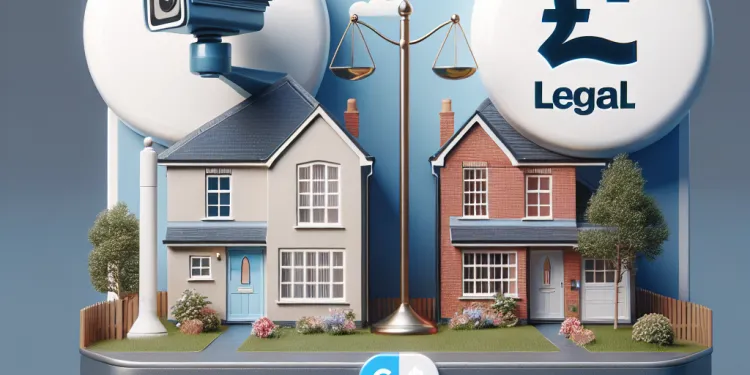
Can the police access my neighbour’s CCTV footage without consent?
Relevance: 47%
-
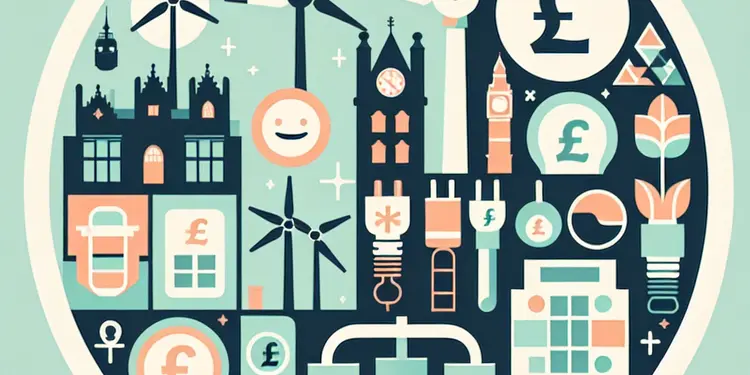
Can I negotiate rates with energy suppliers?
Relevance: 46%
-

What is the mortality rate of Marburg virus disease?
Relevance: 45%
-
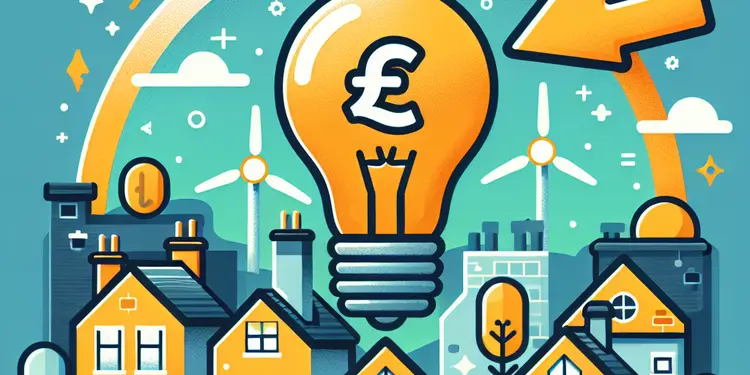
Can I switch to a cheaper energy company if my rates are high?
Relevance: 44%
-

Do insurance rates increase for drivers over 70?
Relevance: 43%
-
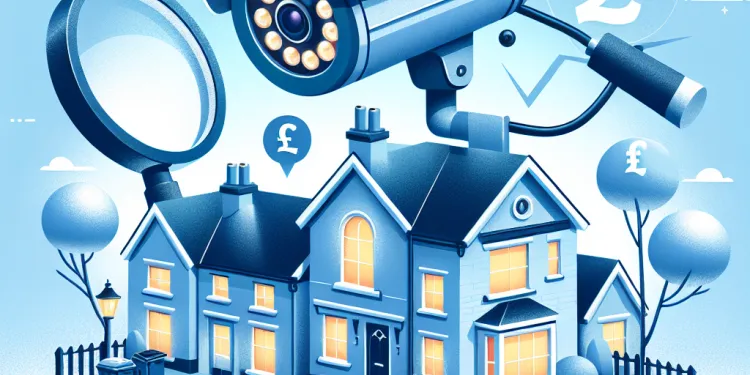
Can my neighbour use footage from their security camera as evidence in disputes?
Relevance: 42%
-

How can I disable my neighbour's security camera?
Relevance: 41%
-

How often do wage rates change in the UK?
Relevance: 40%
-
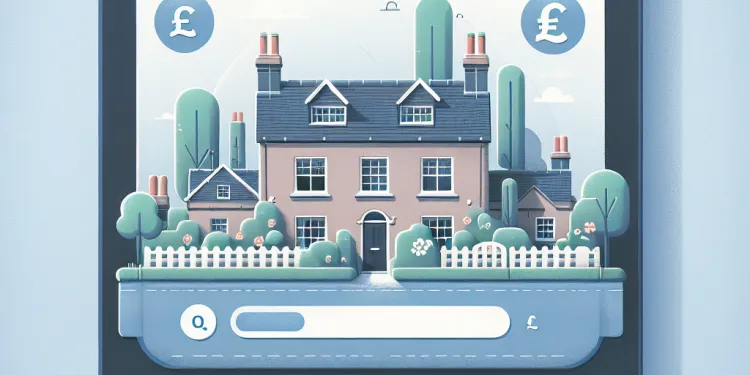
What if my neighbor refuses to cooperate with any solutions?
Relevance: 40%
-

How do better interest rates help me save money?
Relevance: 40%
-

What are the success rates of Paillon treatment?
Relevance: 39%
-

Can I report a neighbor for using a hosepipe during a ban?
Relevance: 39%
Introduction
In the UK, it is not uncommon for residents living in the same neighbourhood to find themselves paying different rates for certain services or utilities. This variation can arise from a multitude of factors. Understanding why these differences exist can help you make informed decisions about your own expenses and potentially find ways to save money.
Property Valuation
One of the primary reasons for rate discrepancies between neighbours is differences in property valuations. The valuation of your property can significantly impact council tax rates, as these are based on property value bands set by the Valuation Office Agency. Factors such as property size, location, and specific features or renovations can lead to variations in property assessments, even among neighbouring properties.
Utility Usage and Tariffs
Utility bills, such as gas, electricity, and water, often vary due to differences in usage and the tariffs chosen by the household. Households with higher energy efficiency measures may have lower usage and therefore pay less. Additionally, different providers offer various tariff plans, including fixed and variable rates, which can lead to significant price differences. Therefore, shopping around for the best deal and monitoring usage can help align your rates more closely with favourable terms.
Internet and Television Packages
Rates for internet and television packages can also differ greatly among neighbours as these are largely influenced by the chosen package and provider promotions. Some households may opt for premium subscriptions that include additional channels or higher broadband speeds, which result in higher monthly fees. Bundling services or negotiating deals with providers can sometimes lead to more competitive rates.
Insurance Premiums
Home and car insurance premiums are often influenced by individual circumstances and risk assessments. Factors such as claim history, age, type and value of vehicle or home contents, and security measures can lead to different premiums. Additionally, insurers apply postcodes to assess risk; even a neighbouring street can have a different risk level, affecting policy prices for the residents.
Investment in Renewables and Energy Incentives
Some homeowners invest in renewable energy sources such as solar panels, which can impact energy rates due to feed-in tariffs and energy efficiency savings. These investments can reduce reliance on traditional utilities and lead to lower long-term costs. Government incentives for energy-efficient upgrades might also lower rates through grants or rebates.
Conclusion
While living next to each other might suggest similar costs, individual choices, property specifics, and service provider variations often result in substantial rate differences. To mitigate unexpected costs, it's beneficial to regularly review and compare your current rates with available options. Paying attention to efficiency measures and market changes can provide opportunities for financial benefits.
Introduction
In the UK, people who live next to each other might pay different amounts for services and bills. This can happen for many reasons. Knowing why can help you make good money choices and save money.
House Value
One main reason for different bills is the value of your house. Council tax is based on how much your house is worth. Things like house size, where it is, and any changes made can affect its value. Even if houses are close, they can be priced differently.
Using Gas, Electricity, and Water
Bills for things like gas, electricity, and water can change because of how much you use and the plans you choose. If your home is more energy efficient, your bills might be lower. Different companies offer different prices. Checking these can help you find a better deal.
Internet and TV Packages
How much you pay for internet and TV can vary a lot. It depends on the package and deals you choose from the provider. Some people choose extras like more channels or faster speeds, which cost more. Bundling services or asking for deals might get you better prices.
Insurance Costs
Home and car insurance costs depend on personal details and risk. Things like previous claims, age, type of car or home, and security features can change prices. Where you live impacts costs too; even a nearby street could have different insurance prices.
Green Energy Choices
Some people use green energy like solar panels. This can change how much they pay for energy because of savings and special rates. Government help can also reduce costs with discounts or money back for energy-friendly upgrades.
Conclusion
Living close to someone does not mean you pay the same bills. Choices, house details, and company options can make a big difference. To keep costs down, compare your rates with others. Look for ways to save and stay alert to any changes in the market for the best deals.
Frequently Asked Questions
Why could my electricity bill be higher than my neighbor's?
Factors like different usage patterns, appliance efficiency, or rate plans can lead to differences in electricity bills.
What role does home insulation play in different utility costs?
Poorly insulated homes may require more energy for heating or cooling, resulting in higher bills compared to well-insulated homes.
How does the size of my home affect the rate I pay for utilities?
Larger homes typically consume more energy and water, leading to higher utility rates compared to smaller homes.
Does time-of-use affect my electricity rates?
Yes, rates can vary depending on the time of day and the demand on the grid, affecting those not on flat-rate plans.
Why might my heating bill be more than my neighbor’s?
Differences in thermostat settings, heating systems’ efficiency, and household occupancy can affect heating costs.
Can the age of appliances lead to different utility costs?
Older appliances are typically less energy-efficient, which can result in higher utility costs compared to newer models.
How can energy-efficient upgrades impact my utility rates?
Upgrades like energy-efficient windows or a new HVAC system can reduce energy usage, lowering utility costs.
Could my water bill be higher than my neighbor's due to leaks?
Undetected leaks in the plumbing can lead to significant water wastage, raising water bills compared to those without leaks.
Why does the rate plan type impact my utility costs?
Different rate plans, such as fixed-rate vs. variable rate, affect how costs are calculated and can lead to differences in bills.
What is the impact of household size on utility costs?
Larger households generally use more resources, which can result in higher utility bills than smaller households.
Could smart home technology influence my rate differences?
Smart technology can optimize energy usage, potentially lowering bills compared to homes without such technology.
Do regional climate differences affect utility costs?
Yes, homes in regions with extreme temperatures may incur higher energy costs due to heating and cooling needs.
How does landscaping affect water bills?
Landscaping needs and irrigation systems can significantly affect water usage and costs compared to neighbors with less demanding landscapes.
Why might electric vehicle charging affect my electricity bill?
Charging an electric vehicle increases electricity consumption, potentially leading to higher bills than those who do not own EVs.
Does having a pool impact my utility rates?
Pools require water and consistent maintenance through heating or filtration, increasing utility costs compared to non-pool owners.
Could peak demand charges cause differences in utility rates?
Utilities may charge more during peak demand periods, affecting those who consume more energy during these times.
How do personal habits influence utility rates?
Frequent use of high-energy devices or inefficient habits can lead to increased utility costs compared to more conservative usage.
What impact do government incentives have on utility costs?
Incentives or rebates for energy efficiency improvements can reduce costs, affecting bills differently.
Do energy provider differences lead to rate discrepancies?
Different providers offer various rate plans and incentives, leading to disparities in utility costs between neighbors.
Can usage monitoring and smart meters affect my utility rates?
Monitoring and smart meters can help optimize usage patterns, potentially lowering bills compared to traditional meters.
Why might my electricity bill be more than my neighbor's?
Sometimes, your electricity bill can be more than your neighbor's bill. Here are some reasons why that might happen:
- You might use more electricity at home. For example, leaving lights on or using lots of electronic devices.
- Your home might have older appliances that use more electricity.
- Your heating or cooling system might work harder if your home is not well insulated.
- Your electricity company might charge different rates.
Here are some tips to help lower your bill:
- Turn off lights when you leave a room.
- Unplug devices when you're not using them.
- Use energy-saving light bulbs.
- Check if your home has good insulation to keep warm or cool air inside.
If you find it hard to understand your bill, you can:
- Ask someone to explain the bill to you.
- Use apps or tools that can help track your energy use.
- Contact your electricity company for more help.
Things like how we use power, how good our machines are, or the kind of payment plan we have, can make electricity bills higher or lower.
How does home insulation affect your bills?
Home insulation helps keep your house warm in winter and cool in summer. This can save you money on heating and cooling bills. It's like putting a warm coat on your house to make sure you use less energy. If your house is well insulated, you might pay less for electricity and gas. You can also use a smart meter to see how much energy you're using. This helps you understand your bills better.
Homes that don't keep heat in or out well need more energy to stay warm or cool. This makes bills more expensive than homes that do a good job keeping heat in or out.
Does a bigger home mean higher bills for water and electricity?
If your home is big, you might pay more for things like water, electricity, and heat. This is because it can take more energy to keep a big home warm or cool. Also, you might use more lights and water in a bigger space.
Here are some tools and tips to help:
- Use energy-efficient light bulbs.
- Turn off lights when you leave a room.
- Make sure doors and windows are closed to keep in heat or cool air.
Big houses usually use more energy and water. This means people pay more for things like electricity and water than people in smaller houses.
Does the time I use electricity change how much I pay?
Yes, prices can change. It depends on the time of day and how many people are using electricity. If you do not have a plan that keeps prices the same, costs might go up and down.
Why is my heating bill bigger than my neighbor's?
How much it costs to heat your home can change because of three things.
The first thing is how you set your thermostat. That's the thing that controls how warm or cool your home is.
The second thing is how good your heating system is. Some systems work better than others and use less energy.
The third thing is how many people live in your home. More people might mean you need more heat.
Using a simple tool like a thermostat with a timer can help you manage your heating better. You can also ask someone to help explain how your heating system works.
Do old appliances make bills higher?
Old machines use more energy. This can make your bills higher. New machines use less energy and can save you money.
How can using less energy change my energy bills?
Using less energy in your home can change how much money you spend on electricity. Here are some simple ways it can help:
- Save Money: When you use less energy, your bills might be smaller. This means you have more money for other things.
- Better Appliances: Newer, energy-saving appliances use less electricity. They help your home work better and save energy.
- Less Waste: Using energy-saving tools is better for the earth. It helps reduce waste and pollution.
Tools to Help: You can use things like smart meters and energy-saving light bulbs. These tools help track and reduce your energy use.
Try these tips to see how much you can save!
New windows that save energy or a better heating and cooling system can help use less energy. This means you pay less money for electricity and gas.
Is my water bill more than my neighbor's because of leaks?
Your water bill might be higher if there is a leak. A leak is when water is coming out where it should not be. Check for dripping taps or running toilets. If you think there is a leak, ask for help.
If there are leaks in the pipes and we don't find them, a lot of water gets wasted. This makes our water bills higher than they should be.
Why does the kind of rate plan change my utility costs?
There are different ways to pay for energy. Some plans have the same price all the time. Other plans have prices that change. This can make your bills cost more or less money.
Tools like a calculator or asking someone to explain can help understand this better.
How does the number of people in a home affect the bills?
More people in a home can mean higher bills.
Here are some things that can help:
- Keep track of how much water, electricity, and gas you use.
- Turn off lights when you leave a room.
- Use energy-saving appliances.
If you need help, you can ask someone to explain your bills to you.
Bigger families usually use more things, so they might have to pay more for their water, electricity, and other bills than smaller families.
Can smart home gadgets change my bills?
Smart home gadgets are like helpers for your house.
They can talk to other gadgets and help you save energy and money.
Sometimes, using smart home gadgets might make your bills go down.
If you want to learn more, you can:
- Watch videos about smart home gadgets.
- Ask an adult to explain how they work.
Smart technology can help save energy. This might make your bills cheaper than homes without smart technology.
Do weather differences in places change how much we pay for water, electricity, and heating?
Yes, if you live in a place where it is very hot or very cold, your energy bills might be higher. This is because you need more energy to heat or cool your home.
How does gardening change water bills?
Having lots of plants and grass in your yard can use a lot of water. This can make your water bills higher than your neighbors who have fewer plants to take care of.
How can charging my electric car change my electricity bill?
Charging an electric car uses more electricity. This can make your electricity bill higher than people who do not have electric cars.
Does having a pool change my bills?
Pools need water, and you have to look after them by heating and cleaning. This can make your water and electricity bills higher than people who do not have pools.
Can high usage times make utility bills different?
Energy companies might ask you to pay more money when a lot of people use energy at the same time. This can cost more if you use a lot of energy during these busy times.
Helpful Tips:
- Try using less energy when everyone else is using a lot. This can help you save money.
- Set reminders to use energy during quieter times.
- Use smart devices to track and control your energy use.
Do your habits at home change your energy bill?
If you use a lot of energy or have habits that waste energy, your bills can be higher. It costs more money than using energy in a careful way.
How do government help programs change utility costs?
Energy upgrades can save you money. They can make your bills smaller.
Do different energy companies charge different prices?
Energy companies are the businesses that sell us electricity and gas.
Sometimes, different companies can have different prices for their energy.
This means it is good to check and compare prices before choosing a company.
Using a comparison website can help see which company is the cheapest.
Different companies have different prices and special offers. This means neighbors might pay different amounts for their utilities.
Can checking how much energy I use and smart meters change my bills?
Smart meters and regular checks can help us use energy better. This might make our bills smaller than with old meters.
Useful Links
Have you found an error, or do you have a link or some information you would like to share? Please let us know using the form below.
-->
This website offers general information and is not a substitute for professional advice.
Always seek guidance from qualified professionals.
If you have any medical concerns or need urgent help, contact a healthcare professional or emergency services immediately.
Some of this content was generated with AI assistance. We’ve done our best to keep it accurate, helpful, and human-friendly.
- Ergsy carfully checks the information in the videos we provide here.
- Videos shown by Youtube after a video has completed, have NOT been reviewed by ERGSY.
- To view, click the arrow in centre of video.
- Most of the videos you find here will have subtitles and/or closed captions available.
- You may need to turn these on, and choose your preferred language.
- Go to the video you'd like to watch.
- If closed captions (CC) are available, settings will be visible on the bottom right of the video player.
- To turn on Captions, click settings .
- To turn off Captions, click settings again.
More Items From Ergsy search
-

Why might I pay a significantly different rate from my neighbor?
Relevance: 100%
-

Are there different rates of Stamp Duty in the UK?
Relevance: 63%
-

Is it necessary to check on neighbors during a heatwave?
Relevance: 61%
-

What is my neighbour required to do under GDPR?
Relevance: 57%
-

How can I compare prices among different energy suppliers?
Relevance: 57%
-

Do neighbours need to inform me if their cameras record my property?
Relevance: 57%
-

What can I do about my neighbour's security camera?
Relevance: 56%
-

What can I do about my neighbour's security camera?
Relevance: 56%
-

Can I ask my neighbour to reposition their security camera?
Relevance: 56%
-

Are there privacy laws that protect me from neighbor's cameras?
Relevance: 56%
-

What if my neighbor claims the camera is for security but it points towards my property?
Relevance: 55%
-

Can I request footage of myself from my neighbour's CCTV?
Relevance: 55%
-

Is it legal for me to block the view of my neighbour's security camera?
Relevance: 55%
-

Why do energy companies charge different rates for their electricity?
Relevance: 55%
-

What happens if a neighbor builds a fence on my property?
Relevance: 55%
-

Is it legal for my neighbor to have a security camera facing my property?
Relevance: 55%
-

Does the ICO have the power to take action against my neighbour?
Relevance: 54%
-

Can I block the view of my neighbor's camera with physical barriers?
Relevance: 53%
-

How can I stop my neighbour's security camera pointing at my property?
Relevance: 53%
-

What should I do if I feel my privacy is being invaded by my neighbour's CCTV?
Relevance: 53%
-

What should I do first if my neighbor's security camera is pointed at my property?
Relevance: 53%
-

Should I contact the authorities if my neighbor refuses to adjust their camera?
Relevance: 53%
-

Can I ask for legal help to get my neighbor’s camera moved?
Relevance: 52%
-

Are first-time buyers affected differently by interest rate changes?
Relevance: 51%
-

Can my neighbour legally point a security camera at my property?
Relevance: 51%
-

What steps can I take if my neighbour refuses to reposition their security camera?
Relevance: 51%
-

What is the difference between fixed and variable rate plans?
Relevance: 49%
-

Is there a difference in concussion rates between amateur and professional rugby?
Relevance: 47%
-

Can the police access my neighbour’s CCTV footage without consent?
Relevance: 47%
-

Can I negotiate rates with energy suppliers?
Relevance: 46%
-

What is the mortality rate of Marburg virus disease?
Relevance: 45%
-

Can I switch to a cheaper energy company if my rates are high?
Relevance: 44%
-

Do insurance rates increase for drivers over 70?
Relevance: 43%
-

Can my neighbour use footage from their security camera as evidence in disputes?
Relevance: 42%
-

How can I disable my neighbour's security camera?
Relevance: 41%
-

How often do wage rates change in the UK?
Relevance: 40%
-

What if my neighbor refuses to cooperate with any solutions?
Relevance: 40%
-

How do better interest rates help me save money?
Relevance: 40%
-

What are the success rates of Paillon treatment?
Relevance: 39%
-

Can I report a neighbor for using a hosepipe during a ban?
Relevance: 39%


